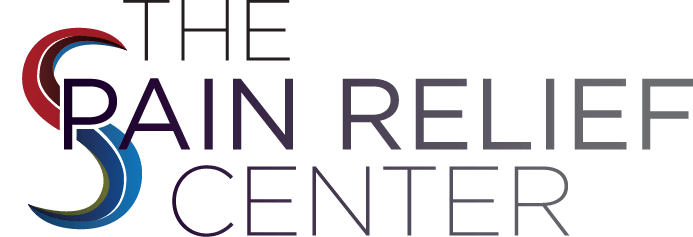Can chronic pain cause other healthcare problems? We dive into the details in this post:
What Is Chronic Pain?
Pain remains one of the most common complaints made in the world today. However, not all pain is the same, as there are different types. Usually, this depends on the duration of which the pain takes place. There is acute pain, which is a type of pain that is related to damage to soft tissue. Typically, this can come in the form of something such as a paper cut and a sprained ankle. Pain that is chronic is different in that the duration is significantly longer.
A chronic kind of pain is defined as pain that lasts more than 12 weeks. Wile thought to be less painful than the acute onset variation, pain that is chronic persists for months after the initial incident. The ongoing cause is typically an illness, but there is no clear cause. The potential culprits can range from sleep disturbance to decreased appetite and fatigue.
Diagnosing a chronic kind of pain can be extremely difficult primarily because pain itself is a subjective experience. This means that there is no objective way of measuring pain with precision. This is why professionals have to rely on the patient’s self-description on the intensity, location, type, and timing of pain to come up with a possible diagnosis. This diagnosis is key to facilitating interventions and a plan of care to alleviate the pain.
The pain of this variety also can take place in many forms. People often describe this pain as shooting, burning, dull, achy, throbbing, tender or stuff. Sometimes, the pain is exacerbated by certain triggers such as extreme temperatures. However, this may not always be the case. In regards to symptoms linked to the pain that is chronic, fatigue, depression, anxiety, nausea, decreased appetite, and poor sleep patterns are very common.
What Are The Effects of Chronic Pain?
The pain of any kind can lead to a variety of health problems, and this can especially be the case if the pain is chronic. In terms of how it can affect one physically, this includes changes in appetite, a lack of energy, a limited ability to move freely and tense muscles. In addition, there are deeper concerns because with pain that persists over a prolonged period of time comes a stress reaction. This stress reaction can cause elevated blood pressure and heart rate. Not only can this impair the body’s ability to pump blood effectively throughout the body and increase the risk of heart disease, but it can result in a compromised ability to fight off disease.
There are not only physical effects but psychological ones as well. These effects come in the form of persistent depression, frustration, anxiety, anger and a fear of being re-injured. This fear can also gradually lower a person’s ability to return to everyday activities. Successful treatment of pain entails a plan of wellness that includes psychological interventions, occupational therapy, physical therapy, and doctor services. This is all done in the hopes of treating a patient in a holistic manner.
In short, yes, chronic pain can definitely cause other healthcare problems.
How Is Chronic Pain Treated?
As stated before, pain is a subjective experience that varies on a case by case basis. This means that the treatment interventions implemented can also alter as well. However, some of the universally common methods of treating prolonged pain come in the form of medication. Arguably the most popular class of drugs are Non steroidal Anti-Inflammatory Drugs or NSAIDs. These classes of drugs are effective for muscular and bone pain as well as chronic syndromes. Opioids are another form of drugs used to treat this kind of pain, and when used appropriately, it has proven to be very effective. Long-acting opioids are typically indicated for pain that is present throughout all hours of the day.
Other medications that are considered for the holistic treatment of the patient include antidepressants and anti-convulsants. Of course, with these kinds of drugs, there comes the risk of tolerance and physical dependence. Tolerance takes place when there is prolonged exposure to a drug and the effects of that drug have a decreased effectiveness. Physical dependence takes place when a drug has been abruptly stopped and symptoms of withdrawal take place. All of these are considered prior to adhering to a medication regimen.
Of course, medications are not the only line of defense used against prolonged pain. Some medical professionals suggest that it is important to try and regularly engage in activities of daily living. Sleeping and exercise have been highly recommended when it comes to pain management of any capacity. Staying mobile and limiting one’s movement can cause a litany of circulatory issues and compound issues already present.
Can Chronic Pain Cause Other Healthcare Problems?
Living with prolonged pain is one of the hardest things an individual can go through. This is because there are many times where it feels as though the condition is not only stagnating, but getting worse. It is a difficult experience to go through and can affect the body in a litany of ways. From the daily physical pains that one has to go through to the psychological toll that it can have, an extended period of pain is a difficult challenge.
There is a lot of health problems associated with pain if it’s not managed for an extended period, and this can impact the way that the body functions on a daily basis. There is understandably a pessimistic outlook on one’s future because there may never seem to be any recourse. Anger can arise out of being unable to reduce suffering. Reflection on our actions in the past can invoke feelings of regret. Anxiety and depression may take over and intensify the physical suffering that is already present.
However, there have been many instances of self-care practices that people use to not focus on the pain. This ranges from deep-breathing exercises to meditation and prayer. Whatever brings one peace can be the remedy that expedites their rehab process. An internal review of thoughts can also make one see how reality can distort what one thinks. Different methods are effective for different people. Those who believe in a higher power heavily emphasize prayer so that divine intervention can assist on their behalf. Those who believe in themselves simply believe in finding quiet time to themselves and reflection.
Contact the Pain Relief Center Today
Everyone’s experience with pain is unique, and there are a variety of methods by which one can deal with the pain. If you happen to be dealing with this kind of pain, see which methods may work for you until you find your comfort zone. It is always better to try and confront pain instead of remaining stagnant in your development.


